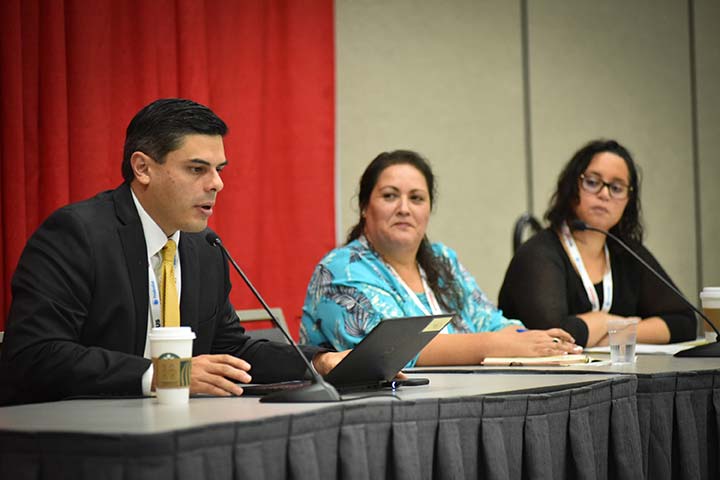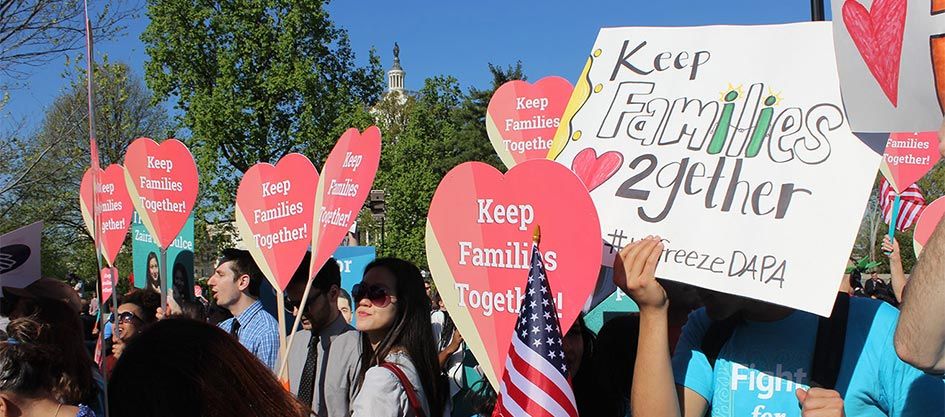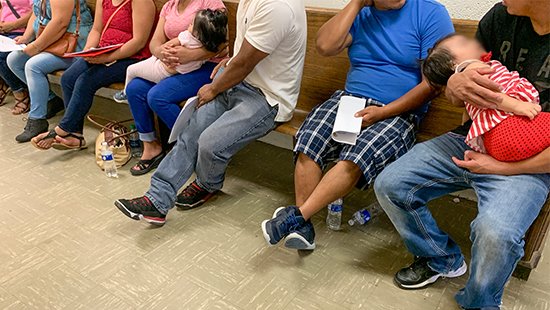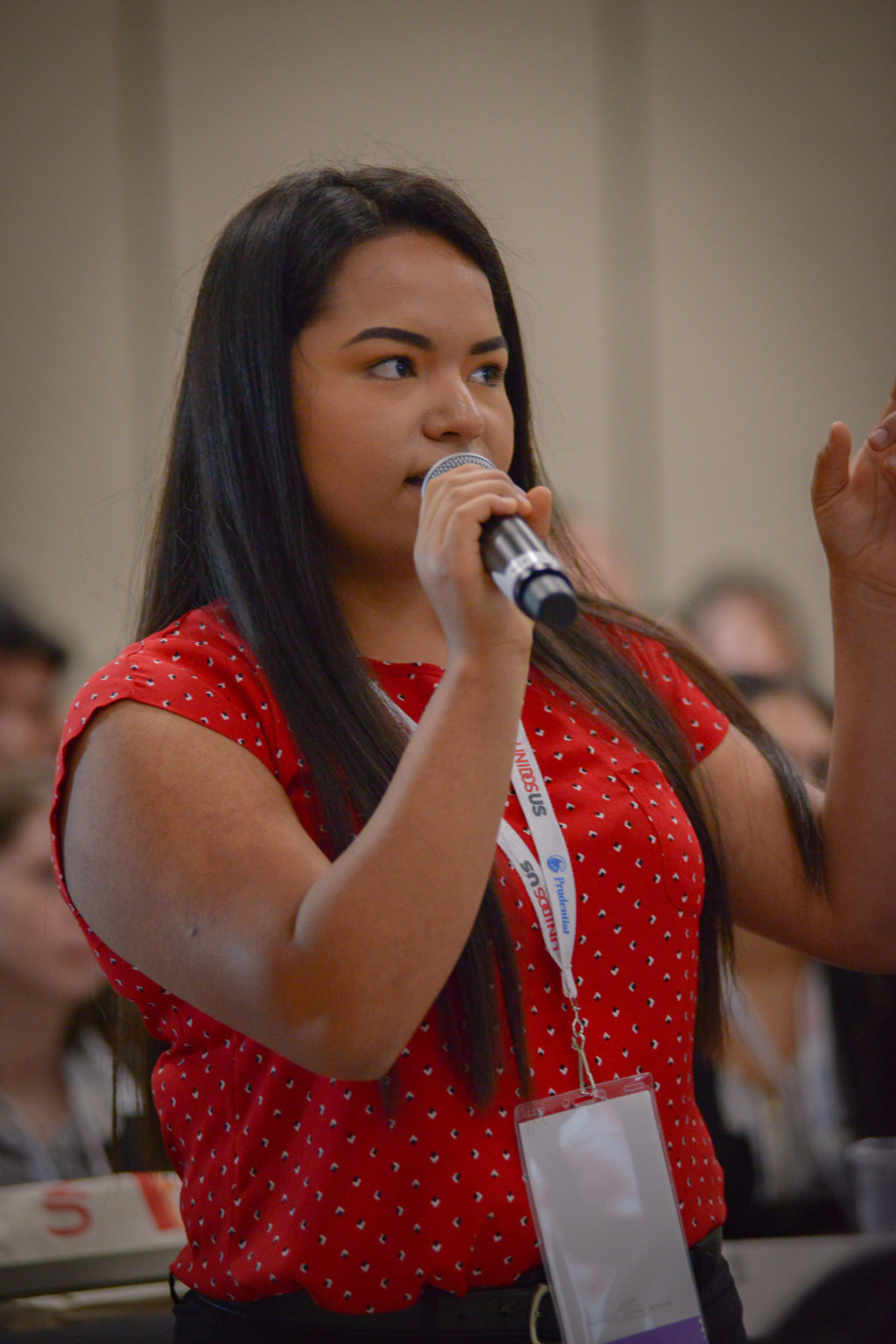A generation at risk: Fighting family separation in the Trump era
By Stephanie Presch, Content Specialist, UnidosUS
Last spring, we were devastated to learn of the Trump administration’s practice of tearing apart families at the border. Three thousand kids were formally separated from their families, as many as 5,000 informally. Even as the U.S. District Court of Southern California handed down a court decision that ended the practice, the ACLU uncovered evidence to suggest that hundreds more children had been taken from their parents.
Even within the past few weeks, we’ve seen Trump continue to escalate his attacks on Latinos. First, there were the large-scale ICE (Immigration and Customs Enforcement) raids in Mississippi; the final public charge rule, which may force immigrants to choose between putting food on the table for their families and applying for a green card; reports that Trump is looking to end the Flores Agreement, which ended indefinite detention for families; and reports that immigrants have been denied or given substandard medical care while in ICE’s custody.

Trump’s attacks on our community were the subject of a session at the 2019 UnidosUS Annual Conference, focusing on the six million U.S.-citizen children who have at least one undocumented parent.
“The average person with undocumented status has been living in the United States for 15 years,” explained Carlos Guevara, Senior Policy Advisor at UnidosUS on the workshop’s panel. “A lot of life happens in 15 years.”
As Guevara elaborated, one in four U.S. children are Latino, and that number is expected to grow to one in three by 2050. This means that President Trump’s cruel immigration policies will affect a generation of young Americans.
Some of the effects include a disrupted education, poor health, and loss of economic security. The full extent of these effects was outlined in our March 2019 report, Beyond the Border: Family Separation in the Trump Era, written by Guevara.
Last week, the Trump administration announced its plan to indefinitely detain migrant children & families & end the #FloresSettlement. UnidosUS expert @CGuevara82 talked w/@cronkitenews about the consequences of this harmful move. https://t.co/L0un9tscH8 #saveflores
— UnidosUS (@WeAreUnidosUS) August 29, 2019
Anti-immigrant policies are not new
Guevara was careful to outline that while Trump’s policies are especially harsh, his policies aren’t as new as they seem.
“Anti-immigrant policies are not new. They have been weaponized…by a hard-right element in the current administration,” Guevara added.
Karina Spilker, Director of Community Development and Engagement at MAAC, an UnidosUS Affiliate in the San Diego area, noted that because of their proximity to the border, the organization was witness to immigration raids.
“We had some Head Start parents picked up while dropping off their kids at school,” Spilker admitted.
But even as Spilker noted the difficulties that MAAC has experienced in the current political climate, she also spoke to the power of collaborating with other organizations.
“When participants put together MAAC and another agency, it’s easier for people to trust us,” she explained.

MAAC is one of several community-based Affiliates that belong to the San Diego Rapid Response Network, a coalition of groups that aid immigrant families in the San Diego area.
But even as the San Diego Rapid Response Network moves to try and aid immigrant families in the area, there is evidence to suggest that draconian, anti-immigrant policies influence U.S.-born Latinos, according to Alana LeBron, Assistant Professor of Chicano/a Studies and Public Health at the University of California, Irvine.
“For the Latino community, deportation is not an abstraction,” she said.
For example, six in 10 Latinos report knowing someone who is undocumented, and the consequences of these immigration policies can be felt throughout communities across the country.
Those consequences were felt on May 12, 2008, when nearly 400 workers in Postville, Iowa, were arrested and deported. In the aftermath, houses were foreclosed on. In some cases, people just abandoned their homes. Local businesses picked up and moved away, and the enrollment in the local school district plummeted from 648 to 564 children—the lowest number in 17 years.
In the weeks and months that followed, members of the community in Postville reported that children in the small Iowa town were traumatized by the helicopters that circled in the sky overhead and the big, dark vans that were posted at every intersection.
Kids began to act out in school, missing their parents or fearing that their family would be split up. Some teens found themselves needing to drop out of school so that they would be able to support their brothers and sisters now that their parents were gone.
Even babies born in the state were affected—Latina mothers in Iowa had a 24% higher risk of having a child who had a low birthweight, which is strongly associated with mortality risk and developmental problems, while White mothers saw no such change, further driving home the effects that these raids have had in our community—and this is only one example, from a decade ago.
Multiple traumas
LeBron laid out four effects that anti-immigrant policies have had on Latinos in the United States—restricted access to opportunity, less trust in institutions, poor health, and discrimination. For example, anti-immigrant policies have been correlated with discrimination against Latinos, and events like the worksite raid in Postville, Iowa, demonstrated that these attacks against our community can harm Latino children’s progress in school, in addition to their overall well-being.
“If we continue down this path, we will do so carrying multiple traumas,” explained LeBron.
Government inspector’s latest findings show children suffered post-traumatic stress and other serious mental health problems as a direct result of Trump’s family separation policies. #FamiliesBelongTogether https://t.co/Nnw8CFrv1r
— UnidosUS (@WeAreUnidosUS) September 4, 2019
LeBron’s analysis has held true in Spilker’s experience at MAAC.
MAAC has a food bank that distributes food for 5,000 families, and there has been a noticeable drop in the number of families served. “People are not coming out,” Spilker remarked.
The fight to protect immigrant families also hits close to home. While MAAC was successful in removing the presence of ICE from two of their properties, there was also a client of theirs who committed suicide.

Protecting immigrants in our communities
LeBron went further and detailed additional concerns that exist within our immigration system.
“What is it like to try and reintegrate into your home country? How is climate change affecting migration patterns? How is the government responding?” she asked the audience.
At the same time, Guevara acknowledged that there is more awareness and knowledge about how draconian immigration policies affect Latinos than there has been in the past. “We should harness that to our advantage and take every opportunity to educate our communities,” Guevara added.
Spilker also urged the audience to be honest with the immigrants that they serve in their community. She added that MAAC is constantly examining what they can do to better protect the immigrants who live in their community and have looked at several strategies to help make this easier, including expanding their capacity of organizational experts who can attend more coalition meetings.
“We’re working on finding champions within our organization because we can’t be at every meeting, and we have to trust them to bring back the correct information to move the work forward,” Spilker explained.
In fact, our entire community is full of champions who work hard to improve our well-being every single day. “There’s a long and vibrant history of advocacy in Latino communities across the United States that has helped us move toward educational equity and arrive at programs like DACA,” added LeBron.
UnidosUS is continuing to work hard to defend immigrant families from rules like the expanded public charge, particularly through our work with Protecting Immigrant Families. As the Trump administration continues to attack Latinos, we will continue to stand up, show up, and work to increase opportunities for our community.
RELATED CONTENT


